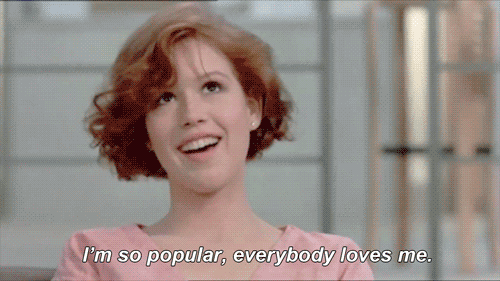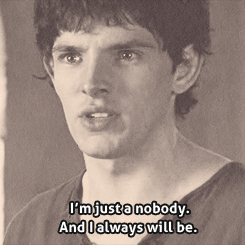(Including my own! Who is, as I write this post, still undetermined . . . )
Some of you will be reading this before the actual mentees are announced. Most of you are probably sick with dread, looking squint-eyed at the #pitchwars feed, half-hoping, half-fearing you'll see something that will tell you the fate of your manuscript.
I know. I was there last year. Right before Brenda announced the mentees on her blog, I was so nervous my entire body shook. I'm a pessimist by nature, so I was pretty sure I was out. And then my mentor followed me on Twitter just moments before the announcement and my hope immediately shot up.
It was painful.
And then elating. For a few days, I was on top of the world. Someone LOVED my manuscript. I was going to do a few edits, make it shiny, and send it out into the world for agents to shower me with praise and book deals.

Um. Not quite.
When I got my five-page single-spaced edit letter from my mentor, I wondered for a wild moment if she'd regretted picking my manuscript. Maybe she was overwhelmed and hadn't read all the entries and she was now cursing herself because she was stuck with this flawed manuscript.
(Turns out, this feeling is really common. Almost every successful writer has this moment, whether it's getting the feedback from your mentor, doing revisions with your agent, or that first edit letter from your new editor.)
For a day or two I couldn't even respond to my mentor. I was sure she hated me.

She didn't--in fact, she had a vision for my story that made it MUCH better. But it took me a few days to wrap my head around the changes (they were daunting) and start to be excited. Over the next two months, I cut nearly a third of my MS and rewrote it. I finished just before the agent round. It was brutal--but so worth it.
So what does this mean for you?
If you don't get picked:
This is the part that kills me. The contest is set up so that each mentor only chooses one. But really, most of us could have chosen dozens. I just want to hug everyone who's disappointed when the picks come out. And maybe add this:
It's not the end of the world. Really. This kind of contest is highly subjective, and not making it in really only means that your chosen mentors felt another manuscript was a better fit for them. Another set of mentors might have felt differently.
You've already done a brave thing by putting your work out there. If you keep putting yourself out there, if you keep looking for feedback and ways to make your writing better, it will happen. (And if you're looking for other contest opportunities, here's a start). It probably won't happen as fast as you're hoping it will--but it will happen.
Pitch Wars IS a great contest, but it's not the only way to an agent. None of my Pitch Wars requests ended in offers. (I actually met my agent at a conference. Two of my other offers were from cold queries).
Take a little time to wallow, if you need it (with your favorite poison: mine's chocolate). Revise, if you get feedback from the mentors that inspires you to. And then send your work out again.
I'll be cheering from the sidelines.

If you do get picked:
Know that the roller-coaster doesn't end here. Some of you have already been in the query trenches: you get this. But the wild elation of being chosen and the crippling insecurity of reading through your mentor's notes and thinking, "How did I get picked if my story has that many flaws?" keeps going.A lot of it will be hard:
It's hard to put your ego aside and take the critique that will make your story better.
It's hard to take your story apart without any assurance that it will be better on the other side. (It will be. Probably.)
It's hard to realize that no matter how much you think you know about writing, you still have more to learn.
It's hard to watch other people get more requests than you--in the agent round, and later when querying. (Tracie has a wonderful post on this, if you haven't already read it).
But there are wonderful parts too, so make sure you hold onto those.
Someone LOVED your manuscript. They loved it enough to champion it in the face of other mentor interest, and they're excited to work with you. You're about to get detailed, quality feedback for free that can help you turn your story around.
The community of writers is the best part of Pitch Wars. Really. Some of you have already connected on the #pitchwars feed, and that's a beautiful thing. Last year, as several people have mentioned, most of the mentees/alternates formed a private Facebook group that's still going strong. We've answered each other's questions, cheered each other on when agent offers arrived, and mourned when deals fell through or agents did. Reach out to your fellow mentees--you're all on this writing journey together, and it's so much easier in company.
And celebrate!
I'm learning that with this writing thing it's easy to focus on the next milestone (get into Pitch Wars, get an agent, get a book deal, get a foreign rights deal, get a starred review . . . ). But the milestones are never ending, so remember to celebrate the good things while you can.

Thanks for the encouragement and reminder to celebrate each victory as they come.
ReplyDeleteHaving been the recipient of a 40-page revision letter from an editor who did NOT acquire my book but only inherited it from the acquiring editor (who had retired), I understand that awful feeling that your "mentor" hates your book. But the fact is, nothing could be farther from the truth. Agents and editors don't put 40 pages of time and energy into something they don't love!!
ReplyDelete(I never regretted any of the changes she had me make, by the way. And when the letter for my next book was only 35 pages, I said, "Woo Hoo! I'm improving!")
So encouraging. Thank you!
ReplyDeleteThanks for your post, and the encouragement.
ReplyDelete*freaks out a bit less than previously*